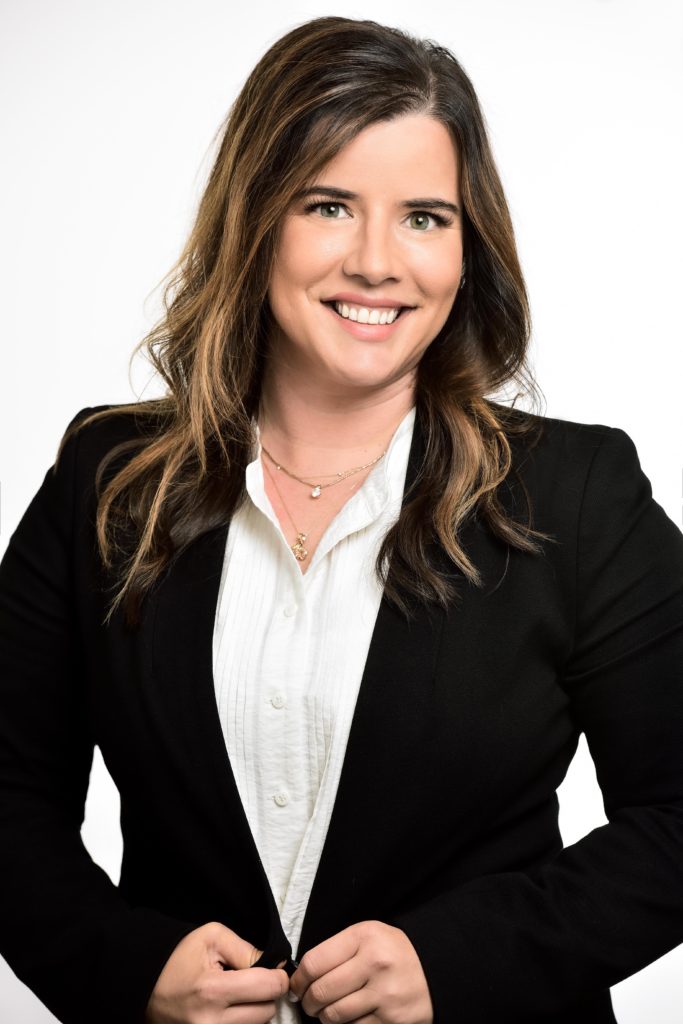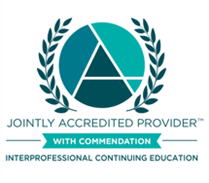
May 1, 2024 | Glendale
May 13, 2024 | Sacramento & Livestream
Gray areas in consent law can complicate decisions that often must be made under duress and may expose hospitals to significant litigation threats. The steady stream of legal changes doesn’t help.
CHA’s Consent Law seminar will prepare you to make tough decisions with confidence. Expert faculty will bring you up to speed on the most important changes in consent law and address the hot topics of consent-related law, including gender affirming care, abortion, and psychiatric holds. They will also address maternity unit closures and privacy concerns, and hone your critical thinking skills with thought-provoking scenarios pulled from real-world experiences.
Join us to share experiences, earn continuing education (CE) credits, and hear how your peers are handling tough consent situations.
The Consent Law Seminar will feature a brief discussion of consent basics while the bulk of the program focuses on more complex issues and how to mitigate risk in complicated situations. This video thoroughly covers the basics of consent – it is a sound, concise resource for newer risk managers and privacy officers and encouraged viewing in advance of the seminar.
This educational activity is jointly provided by AXIS Medical Education and California Hospital Association.
Target Audience: This program is intended for California hospital risk officers, privacy officers, chief nursing officers, in-house general counsel, and compliance officers.
8:00 – 8:55 am | Check in and Continental Breakfast
8:55 – 9:00 am | Welcome and Opening Remarks
9:00 – 9:15 am | Brief Basics of Consent
Every competent adult has a fundamental right of self-determination over their body. This foundational premise will guide this speedy session providing a framework for consent decisions and the challenging issues to be tackled throughout the seminar.
9:15 – 10:00 am | Minors’ Consent
It is generally accepted that, until their children reach 18 years of age, parents and guardians have the right to control minors’ care. However, exceptions to this rule exist, including exceptions based on the status of the minor (married, emancipated, etc.) as well as the nature of the treatment sought (pregnancy-related care, mental health treatment). This session will dive into these exceptions, including minors’ consent issues related to substance abuse treatment, reproductive health, and gender-affirming care.
10:00- 10:30 am | Legislative Update
Health care was top of mind for the California legislature in 2023. This session will cover legislation recently effective or going into effect soon that impact hospitals throughout California, including new laws addressing ambulance offload delays, abortion privacy, the definition of “gravely disabled,” SNF informed consent, elder abuse, psychiatric advance directives, cannabis, and physician assistant abortion scope of practice and training.
10:30 – 10:45 am | Break
10:45 – 11:15 am | Privacy
California and federal privacy laws seek to protect an individual’s health care information. This session will give a high-level overview of key privacy laws, illustrating the complementary nature of one’s right to privacy and the right to self-determination over their body.
11:15 – 12:15 | Reproductive Health
Almost two years following the Supreme Court’s decision in Dobbs, this session will cover the impact of Dobbs on access to reproductive health care in California and nationally. Specifically, this session will dive into issues regarding emergency reproductive health care and EMTALA, access to abortion medication, and providers’ conscience protections. This session is not one to miss, as we will be previewing the impending Supreme Court decisions involving EMTALA preemption and access to mifepristone.
12:15 – 1:15 pm | Hosted Luncheon
1:15 – 2:15 pm | Behavioral Health
Some of the trickiest consent questions come up in the context of patients with mental health disorders and the provision of behavioral health services. This session will dive into consent-specific issues such as the use of restraints, administration of antipsychotic medication, and Riese petitions, and discuss new laws related to due process protections and involuntary holds under the Lanterman-Petris-Short Act (i.e., AB 2275). Depending on the outcome of the March election, we’ll also touch on Proposition 1 and what that might mean for community behavioral health going forward.
2:15 – 3:00 pm | Scenes from the Field, Part 1
Action! “The following story is fictional and does not depict any actual person or event.” Without disclosing any PHI (or attorney confidentiality), this session will present real-life situations that pose challenging consent decisions and create operational obstacles. These sessions will be interactive and exhilarating. Hang on for the ride, as this session will be “Kenough.”
3:00 – 3:15 pm | Break
3:15 – 4:00 pm | Scenes from the Field, Part 2
Action! “The following story is fictional and does not depict any actual person or event.” Without disclosing any PHI (or attorney confidentiality), this session will present real-life situations that pose challenging consent decisions and create operational obstacles. These sessions will be interactive and exhilarating. Hang on for the ride, as this session will be “Kenough.”

Alicia Macklin, Esq.
Partner
Hooper, Lundy & Bookman PC
Ms. Macklin is a trusted advisor to a range of inpatient and outpatient behavioral health care providers, along with hospitals and health systems. She has counseled many of California’s hospitals on unsettled areas of law, with an emphasis on compliance with the Emergency Medical Treatment and Labor Act (EMTALA). Her work with providers includes advising on licensing and accreditation, Medicare and Medi-Cal reimbursement, federal and state privacy and confidentiality requirements, and operational issues. She also helps California providers navigate voluntary and involuntary treatment under the Lanterman-Petris-Short Act (LPS Act).

Julia B. Michael
Senior Managing Counsel
Kaiser Foundation Hospitals / Health Plan
Julia Michael is senior managing counsel for Kaiser Foundation Health Plan, Inc. and Kaiser Foundation Hospitals. Julia is accountable for providing reliable, practical, and effective legal advice to Kaiser hospital and care delivery leaders in California, Hawaii and Georgia. Julia provides day-to-day legal support on operational, business, and regulatory issues including issues related to consent, EMTALA, privacy, medical staff, credentialing, quality, regulatory reporting, psychiatric and behavioral health care. Julia also provides legal support to Kaiser’s national leadership on issues related to reproductive health and gender-affirming care, complex patient discharges and workplace safety.
May 1, 2024 | Glendale
Hilton Glendale Los Angeles North
100 West Glenoaks Boulevard
Glendale, CA 91202
May 13, 2024 | Sacramento
Hyatt Regency Sacramento
1209 L Street
Sacramento, CA 95814
Tuition fees are for in-person seminars or livestream event on May 13
Member/Government Early Bird $295*
Nonmember Early Bird: $570*
*Early bird pricing expires on 4/1/2024
Member/Government: $325
Nonmember: $670
Members are CHA member hospitals, CHA associate members and government agencies.
Nonmembers are non-hospital health care providers, clinics, and post-acute facilities that serve hospitals. Education programs and publications are a membership benefit and are not available to eligible non-member California hospitals.
Presentations will be available online only: You will receive an email before the event with instructions on how to download the presentations to your laptop/tablet for viewing on-site or to print and bring with you. Be sure to download the materials in advance; WiFi access on-site may be limited.
Cancellation Policy/Late Payment: A $50 non-refundable processing fee will be retained for each cancellation. Cancellations must be made in writing seven or more days prior to the scheduled session and emailed to education@calhospital.org. No refunds will be made after these dates for in-person or livestream events. Substitutions are encouraged.
Please note: payment is due on or before the program. Payments not received by the seminar date may be subject to a 10% late fee. In the unlikely event the program is cancelled, CHA will fully refund paid participants within 30 days.
Special Accommodations or Questions: If you require special accommodations pursuant to the Americans with Disabilities Act, or have other questions, please call (916) 552-7637.
Quality Assurance/Grievance: We welcome your feedback. If you have any concerns or dissatisfaction with the quality of a CHA education program please contact Robyn Thomason, Vice President, Education at (916) 552-7514 or email rthomason@calhospital.org. The CHA education quality assurance/grievance policy is available upon request by emailing rthomason@calhospital.org.
Photo and/or Livestream Video Release: CHA may photograph and/or livestream this event. If you prefer not to be photographed or visible during the livestream, please email CHA at education@calhospital.org.
Full attendance at the educational session or livestream event is a prerequisite for receiving professional continuing education (CE) credit. Attendees must sign in at the seminar, complete post-event survey and, when required, include state bar or professional license number. Livestream participants must attest to participation in post-event survey. CE certificates will be emailed approximately three weeks after the seminar. Lunch and breaks are not included for continuing education credit. (Amount of CE offered subject to change.)
Compliance — The Compliance Certification Board (CCB)® has approved this event for up to 6.6 live CCB CEUs. Continuing Education Units are awarded based on individual attendance records. Granting of prior approval in no way constitutes endorsement by CCB of this event content or of the event sponsor.
Legal — CHA is a State Bar of California approved MCLE provider. This participatory activity has been approved for 5.5 hours of MCLE credit. Provider #1980.

In support of improving patient care, this activity has been planned and implemented by AXIS Medical Education and California Hospital Association. AXIS Medical Education is jointly accredited by the Accreditation Council for Continuing Medical Education (ACCME), the Accreditation Council for Pharmacy Education (ACPE), and the American Nurses Credentialing Center (ANCC), to provide continuing education for the healthcare team.
Credit Designation for Nursing
AXIS Medical Education designates this continuing nursing education activity for 5.5 contact hours.
Learners are advised that accredited status does not imply endorsement by the provider or ANCC of any commercial products displayed in conjunction with an activity.
Risk Management
This activity has been approved for a total of 5.5 contact hours of Continuing Education Credit toward fulfillment of the requirements of ASHRM designations of FASHRM (Fellow) and DFASHRM (Distinguished Fellow) and towards CPHRM renewal.
ACHE Qualified Education
ACHE Qualified Education credit must be related to healthcare management (i.e., it cannot be clinical, inspirational, or specific to the sponsoring organization). It can be earned through educational programs conducted or sponsored by any organization qualified to provide education programming in healthcare management. Programs may be sponsored by ACHE, chapters, or other qualified sources, whether the programming is face-to-face or distance offerings (webinars, online seminars, self-study courses, etc.). You will receive a certificate of completion for 5.5 hours.
Disclosure of Relevant Financial Relationships
AXIS Medical Education requires faculty, instructors, authors, planners, directors, managers, peer reviewers, and other individuals who are in a position to control the content of this activity to disclose all personal financial relationships they may have in the past 24 months with ineligible companies. An ineligible entity is any organization whose primary business is producing, marketing, selling, re-selling, or distributing healthcare products used by or on patients. All relevant financial relationships are identified and mitigated prior to initiation of the planning phase for an activity.
AXIS has mitigated and disclosed to learners all relevant financial relationships disclosed by staff, planners, faculty/authors, peer reviewers, or others in control of content for this activity. Disclosure of a relationship is not intended to suggest or condone bias in any presentation but is made to provide participants with information that might be of potential importance to their evaluation of a presentation or activity. Disclosure information for faculty, authors, course directors, planners, peer reviewers, and/or relevant staff is provided with this activity.
The faculty reported the following relevant financial relationships or relationships they have with ineligible companies of any amount during the past 24 months.
| Name of Faculty or Presenters | Reported Financial Relationship |
| Alicia Macklin, Esq. | Nothing to disclose |
| Julia B. Michael | Nothing to disclose |
The directors, planners, managers, peer reviewers, and relevant staff reported the following financial relationships they have with any ineligible company of any amount during the past 24 months:
| Name of Planner/Manager/Peer Reviewer/Staff | Reported Financial Relationship |
| Bob Mion | Nothing to disclose |
| Jessica Lightle | Nothing to disclose |
| Robin Campbell | Nothing to disclose |
| Holly M. Hampe, DSc., RN, MHA, MRM, CPHQ | Nothing to disclose |
| Dee Morgillo, MEd, MT(ASCP), CHCP | Nothing to disclose |
Disclaimer
Participants have an implied responsibility to use the newly acquired information to enhance patient outcomes and their own professional development. The information presented in this activity is not meant to serve as a guideline for patient management. Any procedures, medications, or other courses of diagnosis or treatment discussed in this activity should not be used by clinicians without evaluation of patient conditions and possible contraindications on dangers in use, review of any applicable manufacturer’s product information, and comparison with recommendations of other authorities.
Requirements for credit:
- Attend/participate in the educational activity and review all course materials.
- Complete the CE Attestation form online by 11:59 pm ET on June 13, 2024. Instructions will be provided. If you do not enter the online portal by the above date, you will not be able to retrieve your statement of participation.
- Upon successful completion of the online form, your statement of completion will be presented to you to print.
- Explain how a minor’s status (married, emancipated, etc.) can impact an individual’s ability to consent to certain health care treatments.
- Outline the consent issues related to substance abuse treatment, reproductive health, and gender-affirming care.
- Describe the consent-related impact of new California laws addressing ambulance offload delays, abortion privacy, the definition of “gravely disabled,” Skilled Nursing Facility informed consent, elder abuse, psychiatric advance directives, and physician assistant abortion scope of practice and training.
- Outline the consent-related issues regarding emergency reproductive health care and EMTALA, access to abortion medication, and providers’ conscience protections.
- Summarize the consent-specific issues regarding behavioral health patients such as the use of restraints, administration of antipsychotic medication, and Riese petitions, and new laws related to due process protections and involuntary holds under the Lanterman-Petris-Short Act.
- Summarize the basic requirements of privacy regulations and the complimentary nature of one’s right to privacy and the right to self-determination over their body.
The Consent Manual is available free to members in the new CHA Publications App!
The app provides access to all CHA publications from any desktop or mobile device and features there-and-back cross-reference links and enriched search performance to make finding fast answers to tough questions easier than ever. There is nothing to download – the app is a super-enhanced website that brings unprecedented interactivity to CHA Publications and takes no storage space on your device. You may download PDFs from the app, CHA no longer produces printed manuals.
The 2024 edition of the Consent Manual will be posted to the app as soon as it is completed.
More information about the CHA Publications App is available here.
Livestream attendees can ask questions during the program, just like in-person attendees, and have the same access to presentations as in-person attendees.
Livestream tuition entitles the registrant to:
- a single connection to the event (NOTE: don’t risk your connection by sharing with others — only one connection will be allowed in.)
- CEs (you must attest to participation to receive CE credit)